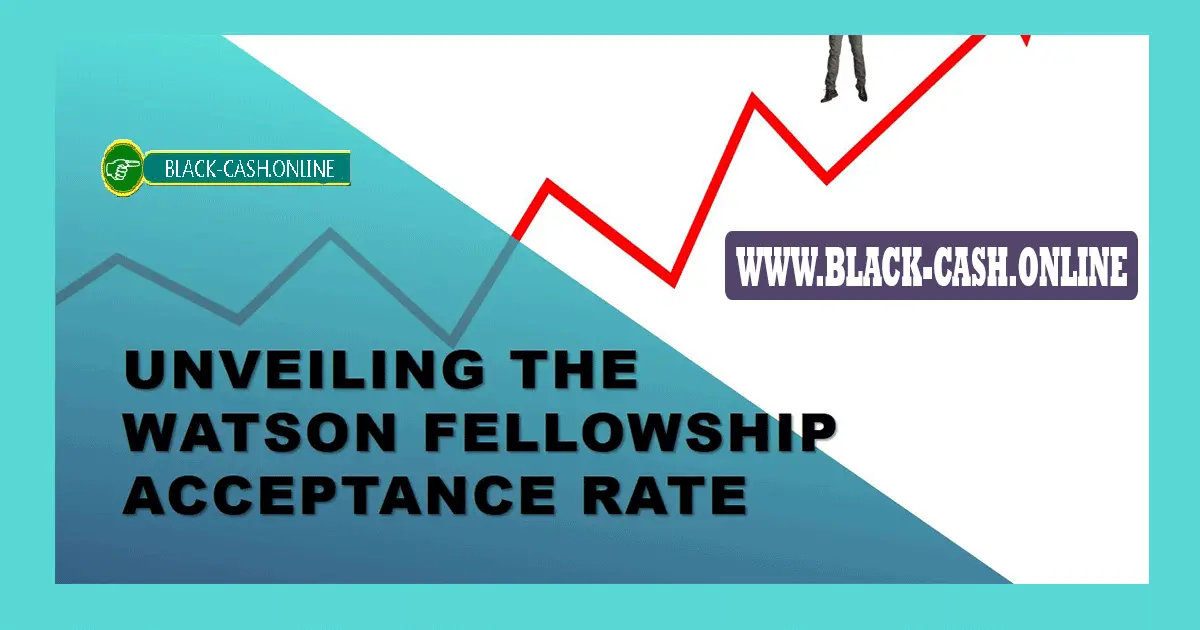Introduction:
In the realm of academic pursuits and global exploration, the Watson Fellowship stands as a beacon for ambitious individuals seeking to transcend conventional learning.
As we delve into the intricacies of the Watson Fellowship, this article aims to provide a comprehensive understanding of the watson fellowship acceptance rate, shedding light on the factors that influence successful applications.
The Thomas J. Watson Fellowship stands as a distinctive one-year grant designated for purposeful, independent exploration outside the borders of the United States.
Defining the Acceptance Rate
The watson fellowship acceptance rate is a critical metric for aspirants navigating the competitive landscape of this prestigious program.
Understanding this rate empowers applicants with insights crucial for crafting compelling proposals.
Becoming a Watson Fellow:
This fellowship provides a unique post-college and pre-career window to delve into one’s deepest interests on a global scale.
Watson Fellows conceptualize original projects, execute them abroad for a duration of one year, and wholeheartedly embrace the ensuing journey.
They have the autonomy to choose their destinations, decide on their interactions, and alter their course as needed.
Importantly, fellows operate independently of academic affiliations and are not permitted to hold formal employment during the fellowship.
Factors Influencing watson fellowship acceptance rate
1- Crafting a Compelling Proposal
A pivotal determinant in the acceptance process is the quality of the proposal.
The Watson Fellowship seeks projects that demonstrate innovation, global significance, and a clear plan of execution.
Academic Excellence
Academic achievements weigh heavily in the selection process.
A robust academic background showcases the applicant’s ability to excel in a self-directed, globally immersive project.
Global Relevance
Proposals with a global perspective and potential impact are highly favored.
The Watson Fellowship values projects that contribute meaningfully to the broader global community.
Strategies for a Successful Application
Researching Past Projects
Analyzing successful projects from previous fellows offers valuable insights.
By understanding what resonates with the selection committee, applicants can align their proposals strategically.
Leveraging Academic Resources
Engaging with mentors and leveraging institutional resources enhances the depth and credibility of proposals.
Demonstrating a strong support system can bolster an applicant’swatson fellowship acceptance rate.
Program Highlights:
Commencing in 1968, the program has consistently produced a year of profound personal insight, perspective, and confidence, shaping the trajectory of fellows’ lives.
Watson Fellows, emerging as leaders in various fields, receive a stipend of $40,000 for the year. Additionally, the foundation offers reimbursement for health insurance, equivalent to 12 months of payments on outstanding loans.
Eligibility for watson fellowship:
Eligibility to apply for the Watson Fellowship is open to US citizens and international students who are applying in the academic year they receive their bachelor’s degree and are nominated by one of the 41 partner institutions.
At-large applications are not accepted, and candidates from all majors and fields of inquiry are eligible.
The foundation prioritizes applicants being up-to-date on their COVID-19 vaccinations.
Inclusivity:
The foundation emphasizes diversity in its vision and values, asserting that a variety of people, ideas, and experiences are essential for cultivating humane and effective leaders.
The selection of Watson Fellows is made without discrimination based on race, color, religion, sex, gender identity, sexual orientation, national origin, or disability.
Application and Selection:
The selection criteria for fellows include qualities such as leadership, imagination, independence, emotional maturity, courage, integrity, resourcefulness, and responsibility.
Fellows are expected to meet certain criteria, including attending pre-departure webinars, departing by August 1 of the award year, staying outside the United States for twelve consecutive months, avoiding countries with specific warnings, submitting reports, and attending the returning fellows’ conference in August.
Application Process:

To apply for the Watson Fellowship, candidates must ensure their eligibility, meet with a campus advisor, and complete the application, including a personal statement outlining their motivation for applying and their project proposal detailing the 12-month plan.
Two recommendations and a transcript are also required. The campus selection process precedes the national selection process, including a one-hour interview with a foundation representative.
Internal deadlines, as well as the national selection process, begin in November, with awards announced in mid-March.
Conclusion:
In conclusion, navigating the Watson Fellowship acceptance process requires a nuanced understanding of historical trends, key influencing factors, and strategic application techniques.
By meticulously crafting proposals that align with the fellowship’s values and showcasing academic prowess, applicants can enhance their chances of securing a coveted spot in this transformative program.
Remember, the Watson Fellowship is not just a journey; it’s a testament to one’s passion, innovation, and commitment to making a global impact.
Good luck on your quest to join the ranks of Watson Fellows!
More Programs:


